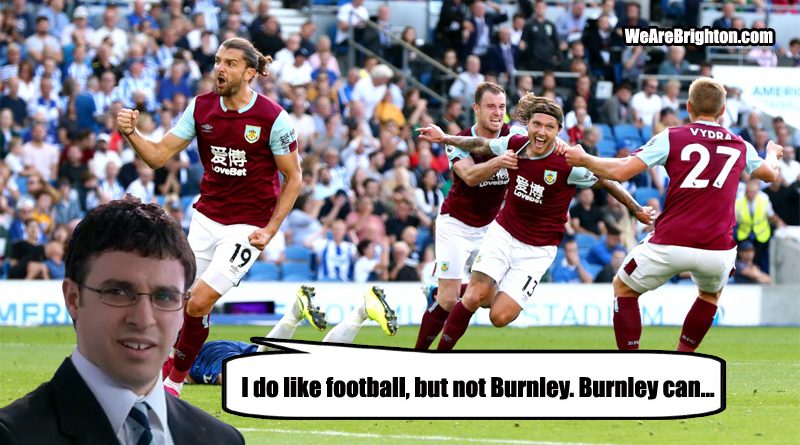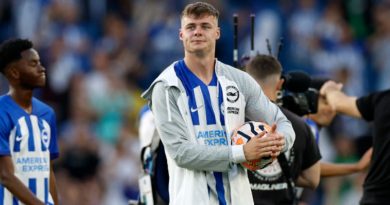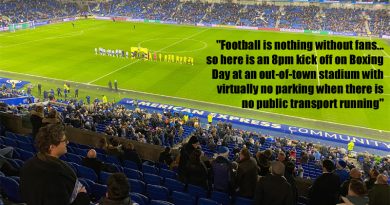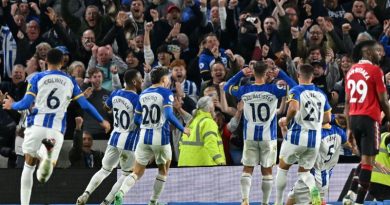Match Review: Brighton 1-1 Burnley
Burnley. Bloody Burnley. What is it about that football team from a grubby corner of Lancashire that means that Brighton can never, ever beat them?
The last time the Albion tasted success against the Clarets was in August 2013, a 2-0 victory delivered by goals from Andrew Crofts and David Lopez to give Oscar Garcia his first home win as Albion boss.
The Liberal Democrats were part of coalition government that hadn’t done anything completely insane. Suggest at a party that Donald Trump could be President and you’d have been laughed out of the building.
Glenn Murray was the darling of the Holmesdale End, Aaron Connolly was 13-years-old and a bag of Starburst at the Amex was nowhere near the £3.20 that you have to fork out these days.
A different world. The most frustrating thing about this dire run of form against Burnley isn’t how long it’s been going on though, but that there have been multiple chances to end it. Yet whenever the Albion deserve to lay the Burnley ghost to rest, the Clarets always find a way to ensure we don’t.
Take the 2015-16 season. At Turf Moor, Bobby Zamora gave Brighton an early lead but the game ended 1-1 after a ridiculously soft penalty was converted by Andre Gray.
In the return match, the Albion were leading 2-1 going into injury time and on course for a deserved three points when Michael Keane popped up with an equaliser.
Murray took one of the worst penalties in the history of football when Burnley escaped the Amex with a 0-0 in December 2017. Last season, Tom Heaton gave one of the best individual performances of goalkeeping we’d seen since a 40 stone, 50-year-old Neville Southall filled the goal for Torquay United at Withdean in 1999. Burnley won 3-1, but without Heaton it could have been 7-3 to the Albion.
And now we have this latest game-that-should-have-been-won against Burnley to enter into the catalogue. The three points looked Brighton’s right up until the 91st minute when Jeff Hendrick scored with Burnley’s only shot on target.
The worst thing about that goal was it was entirely preventable. Moments earlier, Graham Potter had thrown Gaetan Bong on for Solly March in the sort of “negative substitution” that, had it been Chris Hughton making it, would have had the piss boiling of certain elements of the Amex crowd.
Potter had also sacrificed a striker in Murray for a midfielder in Aaron Mooy (see Beram Kayal for Pascal Gross in every single home game in the 2017-18 season). So, when Hendrick struck his equaliser, we had four centre backs on the pitch, a left back and four midfielders. And yet Burnley still carved their way through as easy as a knife in butter.
The leveller started with a short goal kick from Nick Pope. Six passes later and the Clarets had advanced 80 yards up the pitch without so much as a challenge being put in, teeing up Hendrick to drill into the bottom corner from the edge of the box.
For all the excitement and praise that Potter’s positive football has generated so far, if you allow your opponents to cover the length of the pitch with six relatively straightforward passes, you aren’t going to win games of football in the Premier League.
Potter told the BBC afterwards, “It would have been nice to hang on but that’s the Premier League – one thing can hurt you and that’s what happened.” That isn’t really true though. Burnley didn’t hurt us – we hurt ourselves.
Of course, we wouldn’t be saying any of this if Brighton had been more clinical at the other end. We had 14 shots throughout the 90 minutes but only one goal to show for it, Neal Maupay‘s excellent volley from a lovely floated ball in from Solly March.
Not taking the opportunities that come is proving to be a real issue. Davy Propper and Murray were both wasteful with headers, Murray was also denied by a Pope save and a Matt Lowton block and Maupay forced Pope into another smart stop at his near post. Young Connolly perhaps should have made Pope work when he blazed wide from a tight angle after Pascal Gross slipped him in.
In the draw with West Ham United, the Albion could have been out of sight if they were more clinical. It was a similar story against Southampton and that was despite the fact that we had to play for over an hour with 10 men after Florin Andone lost his mind.
Even at Manchester City last week there were two glorious chances for Leandro Trossard, one which was brilliantly saved by Ederson and the other which the Belgian forward scuffed straight at the covering Fernandinho with the goal gaping.
Of course, it’s hard to know how you can become more clinical without finding and then spending tens of millions of pounds on another striker. But Potter needs to find a way for the Albion to start converting these opportunities if it isn’t to become a long, hard season.
Would Trossard have made a difference against Burnley? Quite possibly. Anyone who thinks Andone or Jurgen Locadia could have been the answer on Saturday is kidding themselves, especially as Maupay looks a significant upgrade on both of those.
Trossard’s absence will be keenly felt over the coming weeks while Martin Montoya missing out with illness left many of us scratching our heads as to how the Albion were going to line up with four centre backs named in the starting line up – Adam Webster, Lewis Dunk, Dan Burn and the recalled Shane Duffy.
Most assumed it would be a back four made up of four centre halves, similar to how Germany played for much of the 2014 World Cup in Brazil which they won.
In actual fact, it was Potter’s favoured 3-4-3 with Webster as right wing back. It took a bit of time to get used to, which goes part of the way towards explaining why the first half was about as entertaining as a bout of gout. The second half was much better, right up until the 91st minute at least.
But perhaps we shouldn’t been surprised. After all, it was Burnley we were playing. Bloody Burnley.




